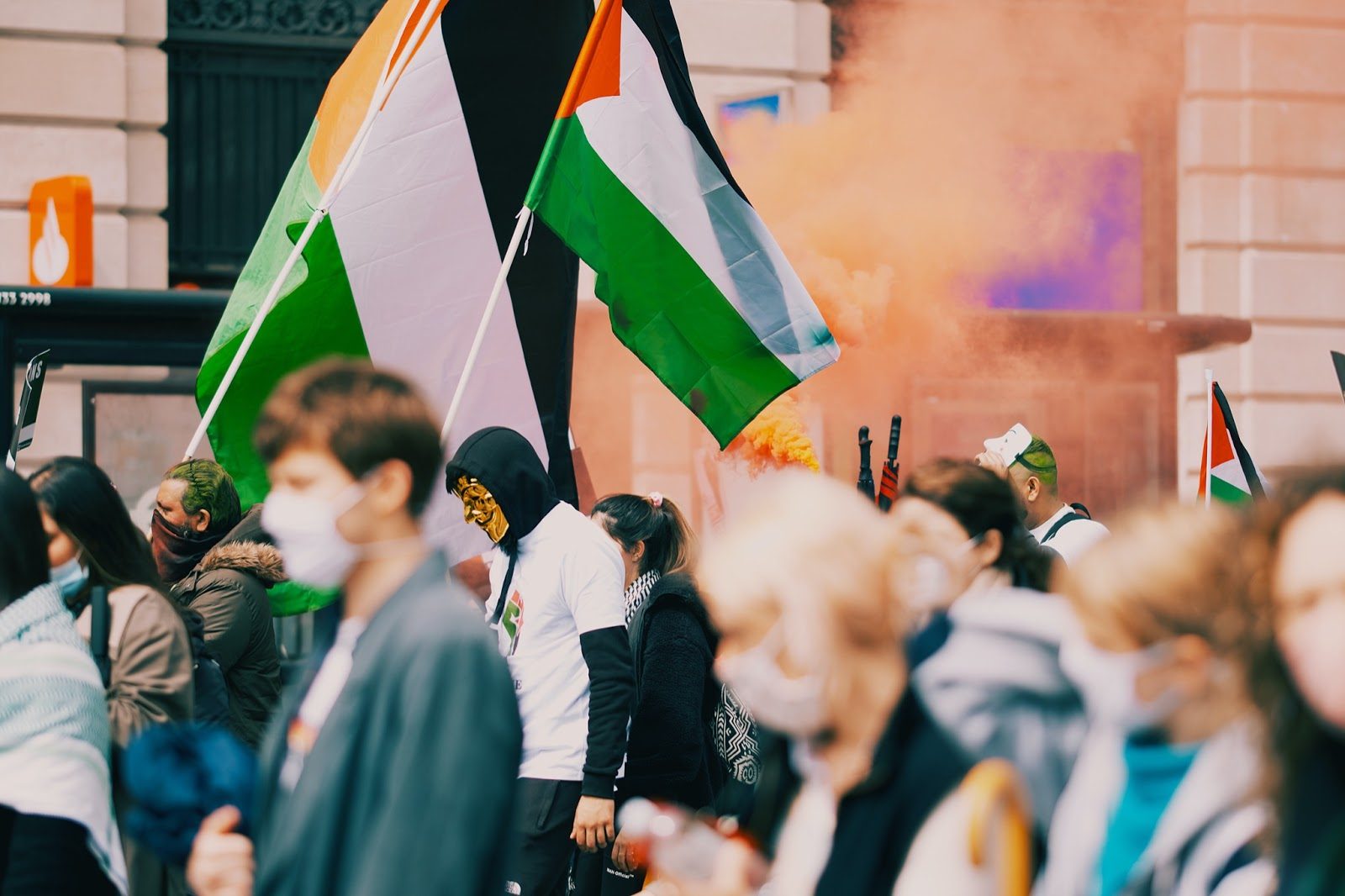The letter has received almost 200 signatures within the company.
Staff at Facebook shared an internal letter calling on the company to “investigate and address potential biases” when moderating pro-Palestine content on the platform. This comes after strong allegations against the social media giant, accusing it of censoring Palestinian content on the app.
Both Facebook and Instagram face criticism for flagging and suppressing the views of posts showing support for Palestine. In many cases, they have been shown to delete posts and entire accounts for sharing content which companies say violates their guidelines.
During Israel’s raid on Palestine, which killed more than 200 people, including 66 children, activists turned to social media to share the horrors they were experiencing. But, instead of seeing their content liked and shared, they often saw it get taken down.
Read more: How social media beat Israel’s propaganda machine
When Israeli forces attacked Al Aqsa mosque, Instagram’s content moderation systems flagged posts related to the incident. According to BuzzFeed News, an Instagram employee spotted that the company removed an infographic explaining the attacks in Al Aqsa because the location is associated with “violence or a terrorist organisation.”
The employee was then informed that the infographic was removed “based on a reference to ‘Al Aqsa’ which is a designated organisation”, a term used by the company to refer to dangerous parties or groups. The censorship prompted Al Jazeera to publish a post, calling Instagram out for its flawed moderation system.

Additionally, terms such as “martyr” were flagged as inciting violence, leading to the removal of posts remembering Palestinian slain by Israel.
Read more: Pro-Palestine censorship on social media is nothing new
The censorship prompted a global backlash, including an open letter from Congresswoman Rashia Tlaib urging social media companies to end such suppression. She added that “social media has become a crucial source for information, pictures, and videos documenting the injustices that Palestinians face”.
It also led to Facebook’s employees calling for an external investigation into its content moderation systems.
“As highlighted by employees, the press and members of Congress, and as reflected in our declining app store rating, our users and community at large feel that we are falling short on our promise to protect open expression around the situation in Palestine,” the letter said. “We believe Facebook can and should do more to understand our users and work on rebuilding their trust.”
This isn’t the only time that employees at Facebook expressed dissatisfaction with the company’s bias towards pro-Palestine content. A few days before the letter, an Egyptian software engineer shared a memo internally, cautioning that “Facebook is losing trust among Arab users”. He then went on to attach evidence showcasing the bias.

Read more: Why I talk to my children about Palestine and politics
Another internal point of conflict is the app’s rating on both the App Store and Google Play Store.
The recent increase in Palestinian suppression led to many users giving the Facebook app a 1-star rating on mobile app stores. As a result, some employees reached out to Apple and Google, asking them to remove the negative reviews.
To this, another employee replied: “We are responding to people’s protests about censoring with more censoring?”
Andy Stone, a spokesperson at Facebook, acknowledged that issues exist within the Facebook app.
In a statement, he said, “We know there have been several issues that have impacted people’s ability to share on our apps. While we have fixed them, they should never have happened in the first place and we’re sorry to anyone who felt they couldn’t bring attention to important events, or who felt this was a deliberate suppression of their voice.”
However, Facebook has not admitted to any bias in its content moderation. Instead, it repeatedly cites technical flaws and mistakes as the cause behind any discrepancies.
Regardless, these issues are a responsibility that the company needs to address, whether or not they are intentional.
Facebook isn’t the only company to have such letters shared within its employees. In recent weeks, staff at both Apple and Google called on their companies to express support for Palestine.
While the internal letter at Apple was written by Muslim staff, Google’s was written by Jewish anti-zionists, who urged the company to not classify criticism of Israel as antisemitic.
Even though an internal letter urging Facebook to express support for Palestinians isn’t unique, the fact that it calls out the company for biased moderation is deemed to be a pretty big deal and showcases how employees no longer have faith in the system itself.
Follow Doha News on Twitter, Instagram, Facebook and Youtube







